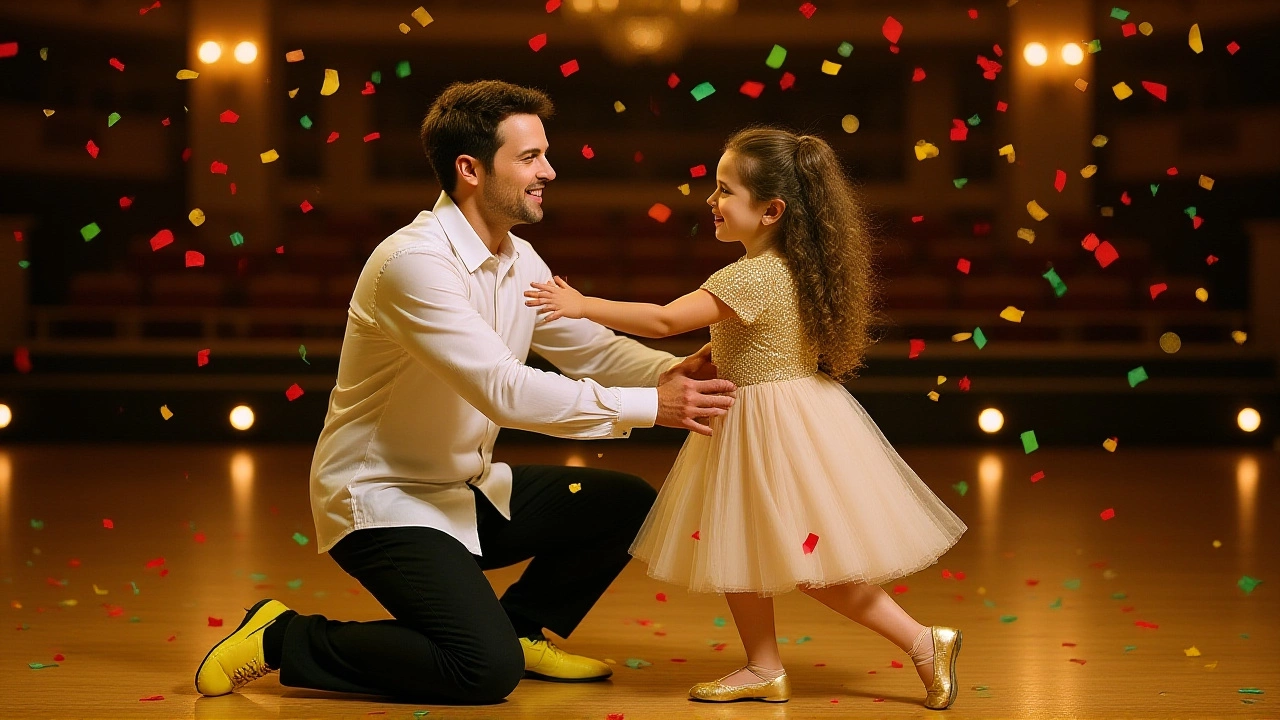When Hilaria Baldwin, actress, author and wellness entrepreneur went live on Instagram on October 12, 2025, she didn’t just talk about a dance‑floor misstep—she accused a coordinated wave of online bullying of forcing her off Dancing With The StarsWalt Disney Studios lot, Burbank, California. The claim reverberated through fans of the ABC reality‑competition, raising fresh questions about how social‑media hate can shape televised outcomes.
Background: Baldwin’s Path to the Ballroom
Baldwin, a New York City native, first rose to prominence alongside husband Alec Baldwin before carving out her own niche as a yoga studio founder (“Yoga for Bad People”, 2017) and best‑selling author of The Living Clearly Method (2018). In late September 2025, the ABC network announced she would join the thirty‑second season of Dancing With The Stars, pairing her with veteran pro Gleb Sevchenko, a 40‑year‑old Ukrainian‑American choreographer.
The season, produced by BBC Studios Los Angeles, premiered on September 23, 2025, and was filmed on the iconic Walt Disney Studios lot in Burbank. Viewers tuned in every Monday and Tuesday at 8:00 PM ET to watch the celebrity‑dance pair tackle everything from the cha‑cha to the contemporary.
The DWTS Run‑Through and the Bullying Claim
During the week of October 5‑11, Baldwin’s performances sparked a flurry of commentary. Some praised her tenacity; others, however, launched a relentless critique of her technique and, more pointedly, suggested she was receiving “favored treatment” from the judges. By October 11—World Mental Health Day—Baldwin posted a short Instagram video stating she was experiencing “very coordinated strategic bullying.” The clip, which lingered just over two minutes, hinted at a broader pattern of attacks but cut off before she could fully elaborate.
She returned the next day for a live Instagram Q&A. “I did get bullied off the show. I did. That is for sure,” she said, pointing to a wave of negative posts on Instagram, X (formerly Twitter), and Facebook that she believed originated from a group of women she described as “mean girls.” Baldwin argued that this hostile environment directly influenced the producers’ decision to separate her from Sevchenko in the elimination round.
After her exit, Baldwin appeared on the official DWTS podcast, emphasizing the emotional toll: “There’s a big problem online right now. We don’t see each other. We make enemies out of each other and I’m talking about my fellow woman. Women’s inhumanity to women needs to stop.”
Network, Expert, and Public Reactions
ABC Entertainment and a spokesperson for BBC Studios Los Angeles have not issued a formal comment as of October 14, 2025. Historically, DWTS results are calculated from a blend of judges’ scores and audience votes, a method that the network has defended for years.
Nevertheless, mental‑health advocates are seizing on Baldwin’s statements. Professionals from the National Alliance on Mental Illness (NAMI) cited the case as a textbook example of how coordinated harassment can exacerbate anxiety and depression, especially among women in the public eye. “When a campaign is organized, it becomes more than a few nasty comments—it’s a digital assault on a person’s sense of self,” said Dr. Leah Martinez, a clinical psychologist who works with high‑profile clients.
Industry analysts pointed out that the 2024‑2025 TV season saw DWTS averaging 6.2 million viewers per episode, according to Nielsen Media Research. That audience size makes any shift in public sentiment noteworthy for advertisers and producers alike.
Impact on Reality TV and Mental‑Health Safeguards
Regulators and digital‑rights groups are now calling for clearer policies. A coalition led by the Digital Rights Alliance urged Meta (owner of Instagram and X) to strengthen its harassment‑detection algorithms, arguing that “organized female‑focused attacks are a blind spot in current moderation tools.”
Meanwhile, other reality‑show participants have begun to speak up. After Baldwin’s interview, a former “Big Brother” contestant disclosed that she, too, felt pressure to bow out after a wave of online smear campaigns. These revelations could push networks to adopt formal mental‑health check‑ins, similar to the support structures Netflix introduced for its “Too Hot to Handle” cast last year.

What’s Next for Baldwin and the Show?
In the wake of the controversy, Baldwin said she plans to focus on mental‑health advocacy, leveraging her wellness brand to host workshops and webinars. No new television projects have been announced as of mid‑October, but insiders hint she may appear as a guest expert on a forthcoming ABC health‑special.
For DWTS, the season continues without her. Producers have not indicated any changes to the voting mechanism, yet the buzz around Baldwin’s accusations may influence how future contestants are briefed on digital safety. Viewers can expect the finale on November 24, 2025, where the remaining couples will vie for the coveted mirror ball trophy.
Key Facts
- Hilaria Baldwin’s elimination week: October 5‑11, 2025.
- Primary partner on DWTS: professional dancer Gleb Sevchenko.
- Show’s average viewership (2024‑2025 season): 6.2 million per episode.
- Reported coordinated bullying spanned Instagram, X, and Facebook.
- ABC and BBC Studios Los Angeles have not formally responded.
Frequently Asked Questions
How does Baldwin’s claim affect other reality‑TV contestants?
Her allegation shines a light on the emotional toll of coordinated online attacks, prompting producers across networks to consider mandatory mental‑health screenings and real‑time social‑media monitoring for future participants.
What evidence exists of the alleged coordinated bullying?
Baldwin cited dozens of similar‑tone posts across Instagram, X, and Facebook that surfaced within hours of each performance. While no forensic audit has been released, social‑media analysts have identified clusters of accounts posting identical hashtags and comments, suggesting a coordinated effort.
Why does Baldwin single out women as the primary source of the harassment?
In her Instagram Live, Baldwin observed that many of the harshest comments came from female users, describing it as "women's inhumanity to women." She believes competitive dynamics and societal pressures fuel a particular brand of rivalry among female fans.
Has ABC taken steps to address online harassment of its stars?
ABC’s public‑relations team previously stated they "take all concerns about online harassment seriously and are committed to providing a safe environment for all participants," but no concrete policy changes have been announced as of October 14, 2025.
What broader implications could Baldwin’s accusations have for social‑media platforms?
Advocates hope the case will pressure Meta and other platforms to refine their harassment‑detection tools, especially for coordinated campaigns that target public figures, potentially leading to stricter enforcement and transparent reporting mechanisms.
